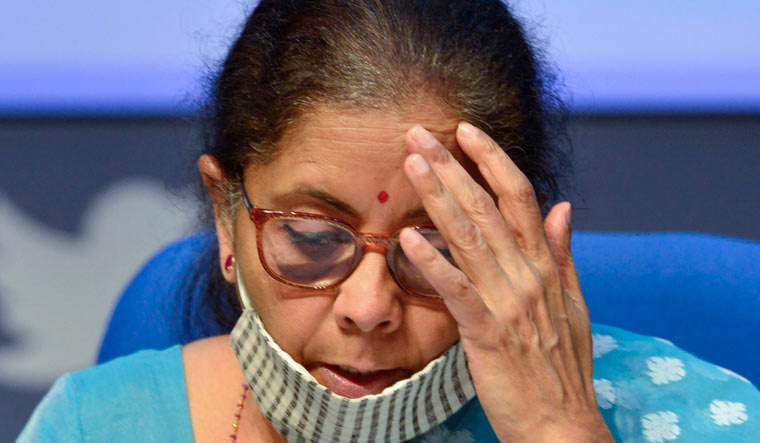The Confederation of All India Traders (CAIT) has written to Finance Minister Nirmala Sitharaman seeking a reconsideration of the economic package, which offered little help to millions of small traders and retailers who have had to suspend operations due to the nationwide lockdown imposed to curb the spread of COVID-19 pandemic.
Sitharaman has over the past five days announced a slew of measures as part of the Union government’s Rs 20 lakh crore economic relief package in the backdrop of the COVID-19 pandemic.
However, the traders felt ignored from the economic package, Praveen Khandelwal, national secretary general of CAIT said in the letter. “Seven crore traders in the country are conducting their business activities in urban, rural and semi-rural areas. The axe of lockdown will fall on them in a most brutal manner,” he said.
With sale of only essential products allowed in the lockdown, many of these traders had to suspend their operations. They will still have financial obligations to meet like salaries of workers, government taxes, bank interest on loans among other things once they reopen. Khandelwal said that without support from the government, around 20 per cent of marginal traders will have no alternative, but to close down their business establishments.
Travel and tourism companies too, were disappointed as there was hardly any fiscal or monetary help offered to them either. Federation of Associations in Indian Tourism and Hospitality expects little to no cash flows for several quarters this financial year as flight restrictions means inbound as well as outbound tourism will be impacted. Domestic travel as well as corporate travel may restart once lockdown is completely lifted, but will remain restricted for some time.
“The industry has gone numb from a lack of any umbrella direction from the government or without any fiscal and monetary support. With no visibility of cash inflows, the Indian tourism industry is now looking at large-scale bankruptcies, business closures, which will lead to job losses across cities, towns and hinterlands of India,” it said.
As part of Prime Minister Narendra Modi’s announcement to build a self-reliant India, the finance minister announced several measures, which was a mix of credit and liquidity enhancements, and long-term reforms. Some of the measures included immediate relief like free foodgrains and additional outlay for the rural employment guarantee scheme aimed at addressing the hardships of the poor and migrant labourers.
Sitharaman also announced an emergency working capital facility and a fund of funds for micro, small and medium enterprises, special credit facility for street vendors and an agri infrastructure fund, among other measures, targeted at some of the stressed sections of the economy.
The government also took this opportunity to announce a slew of reforms like opening up of coal mining for the private sector, allowing private sector companies in most areas and increasing foreign investment in defence production to 74 per cent.
While the stimulus measures were generally welcomed, economists too, said that it did little to address the immediate stress and demand concerns. “The government has aimed for maximum bang for minimum buck, with most of the relief either regulatory in nature or reflecting in its contingent liabilities rather than explicit budgetary support,” said Sonal Varma, chief India economist at Nomura Securities.
“It has used the cover of the COVID-19 crisis to plough through long-pending, politically sensitive structural reforms. As a result, the package may fall short of mitigating the near-term existential crisis for businesses and workers, but is better designed to improve India’s medium term-growth potential and attract long-term risk capital,” Varma added.
A similar sentiment was echoed by a few others, too. For instance, Sunil Tirumalai, head of research at Emkay Global Financial Services, applauded the long-term supply-side reforms announced by the government, but noted that they could have been announced any time and he was not sure on the timeline of the implementation of several of these reforms. “The immediate need for income support and the real economic stimulus are still outstanding issues yet to be satisfactorily resolved,” said Tirumalai.
Several sectors like coal, power, aviation, social infrastructure, space and atomic energy have been singled out for reforms that could have significant long-term potential, said Soumya Kanti Ghosh, group, chief economic adviser at State Bank of India.
“The agricultural reforms deserve special mention. For example, the Centre also proposes to enact a central law to let farmers transport their produce across state borders and sell to whoever they want, not just APMC licensees. If competitive supply chains emerge, this could shorten the farm-to-fork path, as it is called, and assure farmers a larger share of the consumer spend on food,” Ghosh said.
However, he too, pointed out that the package “does not do much” to boost consumption in the short-term and that “could act as a drag on growth.”



